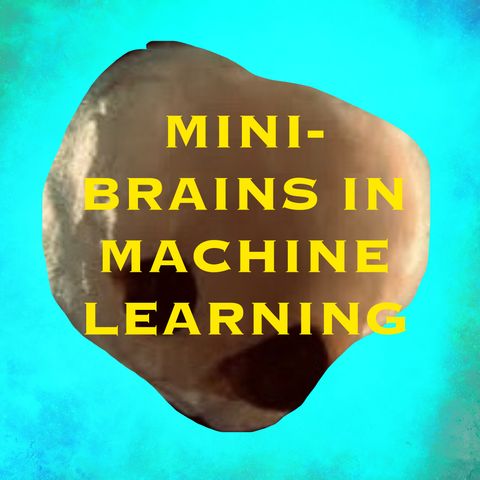89. Brain Organelles, AI, and the Other Scary Science - An Interview with GT (Part I)

Scarica e ascolta ovunque
Scarica i tuoi episodi preferiti e goditi l'ascolto, ovunque tu sia! Iscriviti o accedi ora per ascoltare offline.
89. Brain Organelles, AI, and the Other Scary Science - An Interview with GT (Part I)
Questa è una trascrizione generata automaticamente. Si prega di notare che non è garantita la completa accuratezza.
Descrizione
Summary This conversation explores the topic of brain organoids and their integration with robots. The discussion covers the development and capabilities of brain organoids, the ethical implications of their use,...
mostra di piùThis conversation explores the topic of brain organoids and their integration with robots. The discussion covers the development and capabilities of brain organoids, the ethical implications of their use, and the differences between sentience and consciousness. The conversation also delves into the efficiency of human neural networks compared to artificial neural networks, the presence of sleep in brain organoids, and the potential for genetic memories in these structures. The episode concludes with an invitation to part two of the interview and a mention of the podcast's Patreon offering a commercial-free version of the episode.
Takeaways
- Brain organoids are capable of firing neural signals and forming structures similar to those in the human brain during development.
- The ethical implications of using brain organoids in research and integrating them with robots raise important questions about sentience and consciousness.
- Human neural networks are more efficient than artificial neural networks, but the reasons for this efficiency are still unknown.
- Brain organoids exhibit sleep-like patterns and can undergo dendrite growth, potentially indicating learning capabilities.
- Collaboration between scientists with different thinking skill sets is crucial for advancing research in brain organoids and related fields.
- 00:00 Introduction: Brain Organoids and Robots
- 00:39 Brain Organoids and Development
- 01:21 Ethical Implications of Brain Organoids
- 03:14 Summary and Introduction to Guest
- 03:41 Sentience and Consciousness in Brain Organoids
- 04:10 Neuron Count and Pain Receptors in Brain Organoids
- 05:00 Unanswered Questions and Discomfort
- 05:25 Psychological Discomfort in Brain Organoids
- 06:21 Early Videos and Brain Organoid Learning
- 07:20 Efficiency of Human Neural Networks
- 08:12 Sleep in Brain Organoids
- 09:13 Delta Brainwaves and Brain Organoids
- 10:11 Creating Brain Organoids with Specific Components
- 11:10 Genetic Memories in Brain Organoids
- 12:07 Efficiency and Learning in Human Brains
- 13:00 Sequential Memory and Chimpanzees
- 14:18 Different Thinking Skill Sets and Collaboration
- 16:13 ADHD and Hyperfocusing
- 18:01 Ethical Considerations in Brain Research
- 19:23 Understanding Genetic Mutations
- 20:51 Brain Organoids in Rat Bodies
- 22:14 Dendrite Growth in Brain Organoids
- 23:11 Duration of Dendrite Growth
- 24:26 Genetic Memory Transfer in Brain Organoids
- 25:19 Social Media Presence of Brain Organoid Companies
- 26:15 Brain Organoids Controlling Robot Spiders
- 27:14 Conclusion and Invitation to Part 2
References:
Muotri Labs (Brain Organelle piloting Spider Robot)
Cortical Labs (Brain Organelle's trained to play Pong)
*For a copy of the episode transcript, email us at breakingmathpodcast@gmail.com
Become a supporter of this podcast: https://www.spreaker.com/podcast/breaking-math-podcast--5545277/support.
Informazioni
| Autore | Gabriel Hesch |
| Organizzazione | Breaking Math |
| Sito | youtube.com |
| Tag |
Copyright 2024 - Spreaker Inc. an iHeartMedia Company
